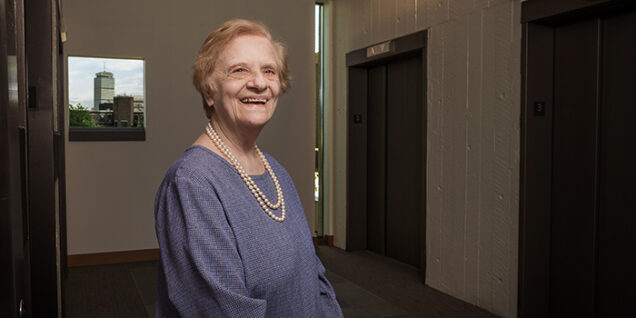The Law of Institutional Self-Regulation (Compliance)

Monday, April 2nd 2018
Boston University School of Law
765 Commonwealth Ave
Barristers Hall
12:45pm – 2:00pm
Please RSVP Here.
This symposium celebrates the publication of The Law of Institutional Self-Regulation (Compliance) authored by BU Law Professor Tamar Frankel.
Professor Frankel’s new book explores self-regulation by institutions that engage in financial activities (banks, mutual funds, exchanges, and advisers). The size, interaction, and impact of these institutions can render the enforcement of the law less effective. It has been suggested that these institutions are currently not only too big to fail, but also too big to regulate. Waiting for the courts to punish wayward financial institutions may be waiting too long and achieving too little. Thus, in addition to external enforcement of the law, there has risen a legal requirement to impose on institutions obligations of self-enforcement of the law and of taking steps to prevent such violations from occurring. Indeed, an increasing number of laws require institutions to establish and effectively operate programs to ensure the institutions’ compliance with the law. This book considers effective supplements to external policing. These types of internal policing differ in form from the enforcement of the law. They include measures concerned with ethics and institutional culture (the rules of behavior which are accepted and enforced by and within the institution).
The book examines the vast area that exists between law and culture. The words of Lord Moulton might offer a guide. He noted “the three great domains of Human Action.” “First comes the domain of Positive Law, where our actions are prescribed by laws binding upon us which must be obeyed.” Next comes “the domain of Free Choice, which includes all those actions as to which we claim and enjoy complete freedom.” He continued: “But between these two there is a third large and important domain in which there rules neither Positive Law nor Absolute Freedom. In that domain, there is no law which inexorably determines our course of action, and yet we feel that we are not free to choose as we would.” This he called “the domain of Obedience to the Unenforceable.” Here a man is “the enforcer of the law upon himself.” The true test of “the real greatness of a nation,” Lord Moulton argued, “is the extent to which the individuals composing the nation can be trusted to obey self-imposed law.”
As this book will attest, the area of “obedience to the unenforceable” is growing. Even if law does not specifically regulate a particular activity, that activity may lead to violation of law and the destruction of trust, which is tremendously costly to society. Our culture is shifting from “Where is it written?” to “compliance to the unenforceable.” This book deals with the laws imposed on financial institutions and rules within financial institutions designed to ensure their compliance. In addition, in recognition of the “slippery slope” that may lead to violations, compliance within the corporation is sensitive to signs of such a slippery slope from activities which may be legal but which may lead to illegal activities. Consequently, the book deals with internal rules within institutions which are designed to prevent the signs of a movement to violations even before they have occurred. This type of prevention is called culture. This is the main focus of assuring legal activity by institutions.
To celebrate the publication of this timely and significant book, we have invited three distinguished scholars to comment on it. Professor Frankel will respond.
Welcome: Dean Maureen O’Rourke, BU School of Law
Moderator: James E. Fleming, The Honorable Paul J. Liacos Professor of Law, BU School of Law
Commentators:
David J. Seipp, Law Alumni Scholar and Professor of Law, BU School of Law
David Webber, Professor of Law, BU School of Law
Kathy Zeiler, Nancy Barton Scholar and Professor of Law, BU School of Law
All – including not only professors, law students, graduate students, and undergraduates, but also alumni and the general public – are welcome to attend the symposium. If you have academic questions about the program, please contact Professor James Fleming, jfleming@bu.edu.
Professor Tamar Frankel has served on the BU Law faculty for the past half century. She was the first female professor to join the law school faculty when she began her career at BU Law in 1967.
Over the course of her career, she has published 10 books and more than 80 articles and book chapters. She writes and teaches in the areas of fiduciary law, corporate governance, mutual funds, and the regulation of the financial system. She will retire from teaching at the end of the 2017–2018 academic year.
The Institute for Fiduciary Standard established the annual Frankel Fiduciary Prize in her honor in 2013 to recognize individuals who advance fiduciary principles. In January, she was presented with the Ruth Bader Ginsburg Lifetime Achievement Award from the Association of American Law Schools’ Section on Women in Legal Education.
In recognition of her distinguished contributions to legal scholarship and to the School of Law, Dean Maureen A. O’Rourke recently appointed Professor Frankel to the Robert B. Kent chaired professorship. Created to recognize excellence in teaching at BU Law, the chair’s namesake, Professor Robert B. Kent (’49), taught civil procedure at BU Law for more than 30 years.
Professor Frankel was recently profiled in the Wall Street Journal as the “intellectual godmother of the fiduciary rule.” WealthManagerWeb has named her among the 50 Top Women in Wealth Management. In addition, she was noted as one of the most well-known 500 lawyers on Lawdragon, and as one of the Women Trailblazers in the Law by the ABA Commission project on Women in the Profession. In 1998, Professor Frankel was instrumental in establishing and designing the corporate structure of the Internet Corporation for Names and Numbers (ICANN).